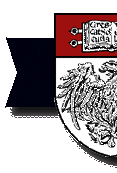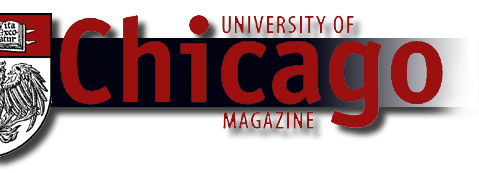 |

Medical
researchers Rowley and Koshland win "America's Nobels"
Often called
"America's Nobels," the Albert Lasker Medical Research Awards are
considered the nation's most distinguished prize in medical research.
Of the more than 300 recipients to date, 59 have gone on to win
the Nobel Prize. Past dual-award winners include such giants as
Charles B. Huggins, the late U of C professor emeritus and cancer
researcher, and geneticist James D. Watson, PhB'46, SB'47.
This September,
two more scientists with U of C ties claimed Laskers: Janet Davison
Rowley, PhB'45, SB'46, MD'48, and Daniel E. Koshland, Jr., PhD'49.
The Albert and Mary Lasker Foundation awarded Rowley, the U of C's
Blum-Riese distinguished service professor of medicine and of molecular
genetics & cell biology, the 1998 clinical-medicine research prize,
which she shared with University of Pennsylvania professor Peter
Nowell and Alfred Knudson, former president of Philadelphia's Fox
Chase Cancer Center. The 1998 Lasker award for special achievement
in medical science went to Koshland, a professor emeritus of molecular
and cell biology at the University of California, Berkeley. Three
other researchers received the Lasker prize for basic medical research.
Rowley, Nowell,
and Knudson were honored for their combined discoveries of the genetic
alterations that cause cancer in humans and that permit cancer diagnosis
at the molecular level. "It is not only a thrill to win the Lasker
Award," says Rowley, "but it is also a great honor to be named along
with two such distinguished scientists and to share the prize with
two such good friends."
Koshland was
recognized for his research, his work as editor from 1985-95 of
the journal Science, and his efforts to improve teaching of the
biological sciences. "It's a good award and I am very pleased,"
says Koshland. "It's nice to know that people think what you did
was important."
Rowley, 73,
has spent her entire professional career at the U of C, where she
has shown how certain chromosome alterations cause different cancers.
Rowley continues to test new techniques in the lab. Using spectral
karyotyping, she is trying to identify the mechanisms of chromosome
rearrangement by focusing on a leukemia-causing chromosome translocation,
or exchange of DNA, that is seen only in patients previously treated
with certain drugs.
At 78, Koshland
continues to teach and research and also serves on the Council for
the National Academy of Sciences. In his 33 years at Berkeley, Koshland
has produced major advances in the understanding of enzymes and
protein chemistry. Now studying the chemical reactions involved
in Alzheimer's disease by analyzing brain-cell changes, he also
is investigating how to convert the chlorine in chlorinated compounds
like DDT into harmless salts.
|



